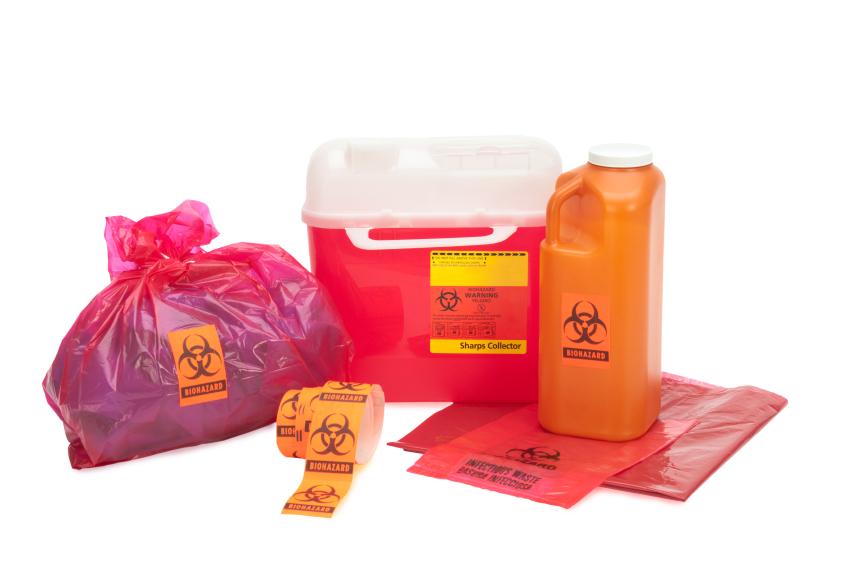Comfort at Your Doorstep: Finding Reliable Medical Waste Removal Near Me
Comfort at Your Doorstep: Finding Reliable Medical Waste Removal Near Me
Blog Article
The Significance of Appropriate Garbage Disposal Practices
The monitoring of waste is a vital facet of environmental stewardship that usually goes undetected in our day-to-days live. Appropriate garbage disposal practices are not just an issue of comfort but are crucial for securing our environments and public health. From the consequences of improper waste disposal on our environment to the lasting ramifications for future generations, the importance of embracing sustainable waste monitoring techniques can not be overstated. By checking out the environmental impact of careless waste disposal, the benefits of reusing campaigns, and the value of community interaction in waste reduction initiatives, a deeper understanding of why appropriate garbage disposal techniques are essential arises.
Ecological Influence of Improper Disposal
Incorrect disposal of waste presents a substantial danger to the environment because of its harmful results on ecosystems and human health. When waste is not effectively handled, it can lead to pollution of the water, air, and soil, creating damage to various plant and animal types. click here. Chemicals and toxins from poorly disposed waste can leak into the ground, polluting groundwater resources and impacting the wellness of both wildlife and people
Furthermore, the build-up of waste in landfills produces greenhouse gases like methane, adding to environment adjustment and global warming. Inappropriate disposal methods likewise result in littering, which not only weakens the aesthetic value of the setting but can additionally damage wild animals via intake or complication.
To reduce these environmental effects, it is critical for individuals and communities to adopt appropriate waste disposal practices such as reusing, composting, and accountable contaminated materials disposal. By taking these actions, we can assist safeguard environments, maintain all-natural sources, and guard human health for future and current generations.
Benefits of Recycling Programs
Frequently getting involved in reusing programs provides many advantages for both the setting and society as a whole. This preservation of resources not only aids in keeping ecological equilibrium however likewise adds to lasting growth.
Furthermore, reusing plays a vital role in minimizing power consumption and greenhouse gas emissions. The production of goods from recycled products generally calls for much less energy contrasted to making from virgin sources - medical waste removal. Because of this, the carbon impact connected with the manufacturing procedure is considerably reduced, aiding in the fight against climate change
Furthermore, recycling programs produce job possibilities in the recycling market, advertising economic development and social well-being. By encouraging the recycling and reuse of products, these programs support a round economic situation that reduces waste generation and optimizes source performance, inevitably leading to a cleaner, greener future for generations to find.
Contaminated Materials Monitoring Guidelines
Applying effective dangerous waste administration guidelines is critical for decreasing ecological and health dangers connected with the improper disposal of dangerous materials - click here. Appropriate handling, treatment, and disposal of contaminated materials are important to stop contamination of dirt, water sources, and air
One key standard appertains labeling of unsafe waste containers to make certain risk-free handling and transportation. Additionally, centers should stick to rigorous storage demands to prevent leaks, spills, or accidents that might endanger human health and the environment. Normal training programs for staff members on contaminated materials management techniques are additionally important to ensure conformity with guidelines and promote a culture of security.
In addition, dangerous waste needs to be segregated based on its residential properties to stop chemical responses that could lead to unsafe situations. Executing an extensive waste tracking system can aid keep an eye on the movement of hazardous materials from generation to disposal, making sure transparency and responsibility. By complying with these guidelines diligently, businesses and industries can contribute to a much safer and cleaner setting for present and future generations.
Area Involvement in Waste Decrease
To properly attend to the environmental and health risks linked with unsafe waste management, involving the neighborhood in waste reduction efforts is vital. Neighborhood involvement plays an essential role in advertising lasting waste monitoring practices and promoting a culture of ecological duty. By educating residents about appropriate waste partition, reusing, and composting strategies, neighborhoods can substantially decrease the amount of waste sent to garbage dumps, consequently reducing ecological pollution and saving natural resources.
Community engagement in waste reduction programs also assists in elevating awareness concerning the importance of waste reduction and motivates individuals to embrace environment-friendly habits in their lives - medical waste disposal. Collective efforts between regional authorities, waste management companies, and neighborhood members can lead to the execution of effective waste reduction techniques tailored to the particular demands of each area or community
Moreover, community involvement fosters a feeling of ownership and accountability amongst citizens, empowering them to take aggressive steps in the direction of decreasing waste generation and advertising a cleaner, much healthier environment for future and present generations. By interacting in the direction of common waste decrease objectives, areas can make a significant influence on mitigating the unfavorable impacts of incorrect waste disposal techniques.

Future of Sustainable Waste Practices
The evolution of sustainable waste techniques is crucial for advancing environmental stewardship and source conservation in the coming years. As the global population continues to grow, so does the quantity of waste produced (medical waste removal). Traditional waste disposal techniques, such as landfilling and incineration, are no more sustainable in the lengthy term because of their significant ecological influences. Progressing, the future of sustainable waste methods lies in accepting a round economic climate strategy, where resources are reused, reused, or repurposed to decrease waste generation.
Technical innovations play a crucial role in forming the future of lasting waste techniques. Advanced waste sorting and recycling innovations can aid enhance the efficiency of waste management processes, allowing for the recovery of valuable sources from waste streams. Additionally, the fostering of naturally degradable materials and composting methods can help in reducing the quantity of organic waste ending discover this up in garbage dumps, therefore reducing greenhouse gas emissions.
In addition, advertising customer understanding and education on correct waste segregation and disposal techniques is vital for driving behavior adjustment in the direction of sustainability. By fostering a society of waste reuse, recycling, and reduction, neighborhoods can collectively add to a cleaner and much healthier atmosphere for future generations.

Conclusion
Finally, correct garbage disposal techniques are critical for reducing environmental impact and advertising sustainability. By carrying out recycling programs, managing unsafe waste appropriately, and encouraging community involvement in waste decrease initiatives, we can function towards a cleaner and healthier atmosphere. It is necessary for services, people, and governments to focus on lasting waste techniques for the future health of our planet.

From the effects of inappropriate waste disposal on our environment to the long-term effects for future generations, the significance of adopting sustainable waste administration practices can not be overstated. By discovering the ecological impact of careless waste disposal, the advantages of recycling campaigns, and the value of neighborhood interaction in waste reduction efforts, a deeper understanding of why correct waste disposal methods are essential emerges.
By educating residents regarding correct waste partition, recycling, and composting methods, neighborhoods can dramatically minimize the amount of waste sent out to garbage dumps, consequently reducing environmental contamination and saving all-natural sources. (click here)
Moving ahead, the future of sustainable waste methods exists in embracing a circular economic situation method, where resources are recycled, reused, or repurposed to decrease waste generation.
Advanced waste sorting and reusing modern technologies can aid boost the effectiveness of waste monitoring procedures, permitting for the recuperation of beneficial resources from waste streams.
Report this page